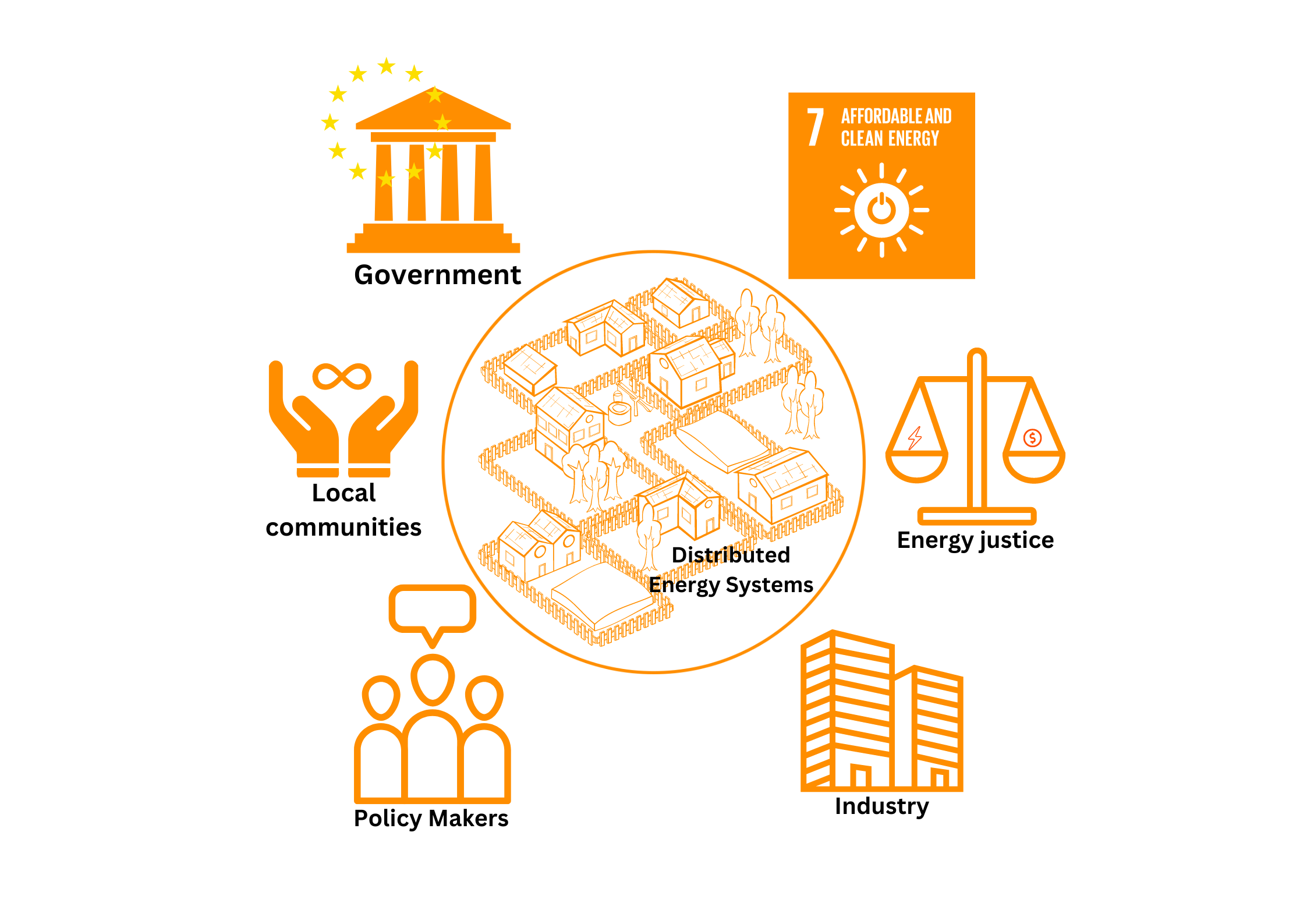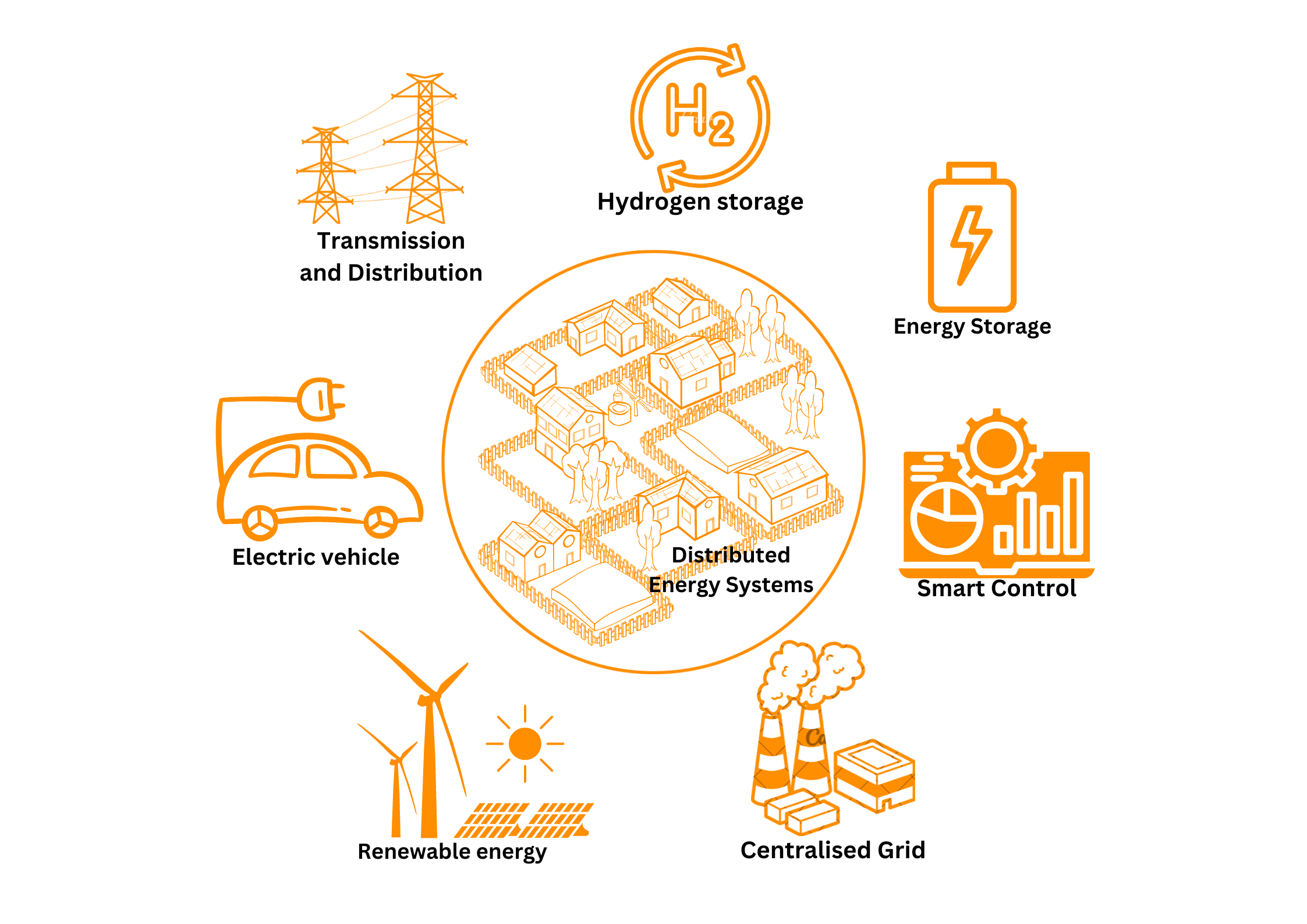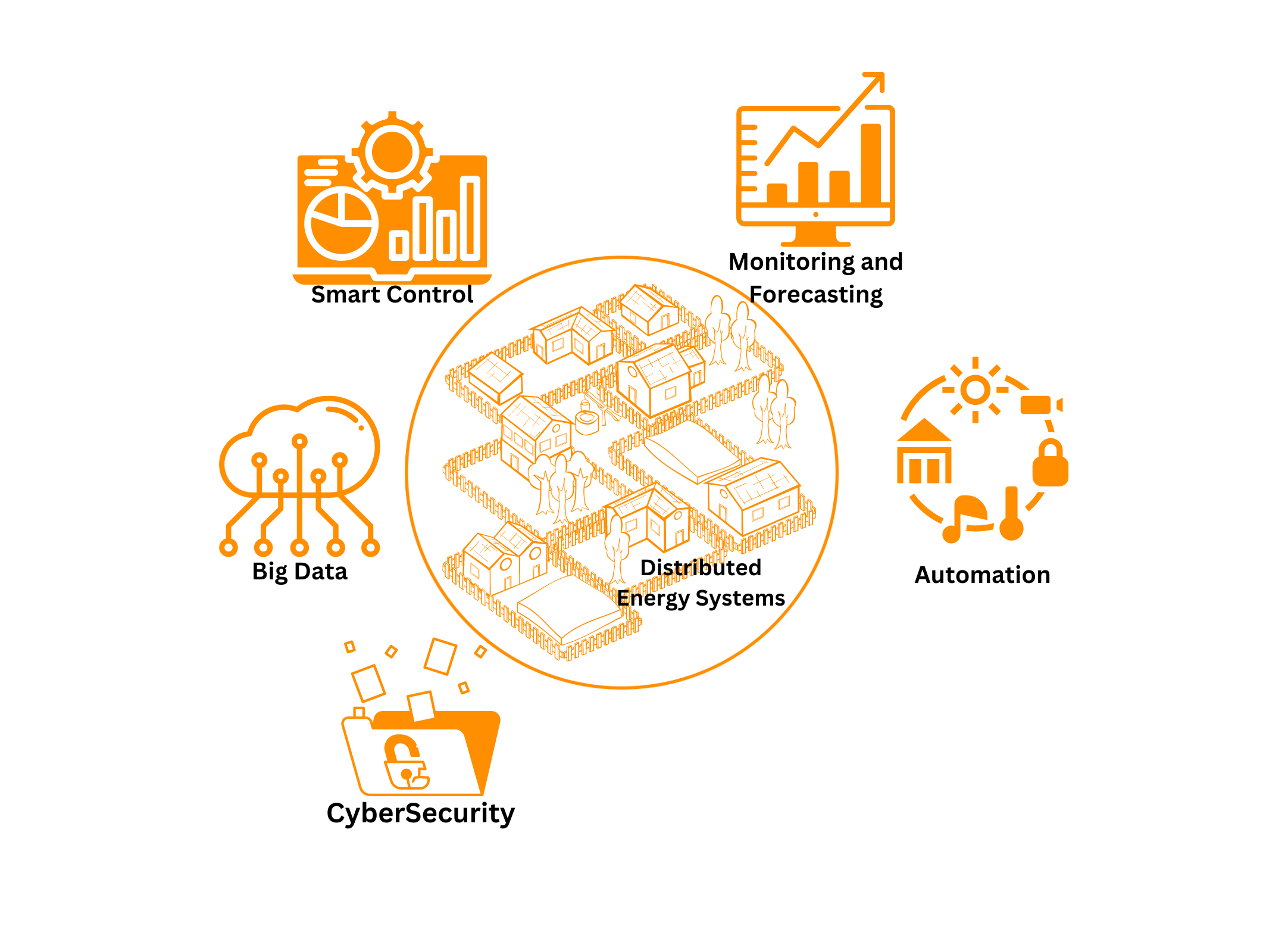Inclusive Systems
The goal of inclusive energy systems is not merely to provide energy access to all but to empower communities, address energy poverty and socioeconomic equity, ensure high quality energy is accessible, and to develop innovations that support a just energy transition. Inclusive energy systems require and ensure that local communities, policymakers, industry leaders and other stakeholders collaborate from the start using transparent processes that establish trust. The theme of inclusive energy also highlights the necessity of attending to the energy demands of marginalized and underprivileged groups, including those residing in isolated, rural, and impoverished urban areas. Instead of pushing ‘one-solution-for-all’, inclusive energy aims to design and develop energy systems that are customized and embedded in the diversity of people's social, cultural, and economic lives.


Integrated Systems
Fossil-fuel based energy systems are centralized and require less coordination. This is because fossil fuel sources are more reliable and easier to operate in an energy system context. Renewable energy sources, on the other hand, are diverse, decentralized, intermittent, and can be challenging to transport and store. They require integrated energy systems, in which electricity can be converted to hydrogen or heat and vice versa and be stored at large volumes and over long periods. Researchers at the PowerWeb Institute are addressing many research and innovation challenges, such as storing green electricity in hydrogen or using electric vehicles to provide energy back to the grid so society can get the most out of integrated energy systems.
Intelligent Systems
Unlike traditional systems, where most energy comes from a few large fossil fuel plants, the energy transition involves integrating a diverse range of renewable sources such as solar, wind, and hydropower. These new energy resources are often decentralized and intermittent – the energy providers are primarily distributed as rooftops, home batteries, and wind turbines; production usually depends on weather conditions. Managing energy from these more complex systems will require advanced control and coordination mechanisms and sophisticated technology to balance supply and demand in real time.
Researchers at the PowerWeb Institute are investigating how intelligent systems integrate smart grid technologies such as artificial intelligence, machine learning, and data analytics to enable better communication, real-time data analysis, and automation. The goal is to generate knowledge to build energy systems that can predict and mitigate energy consumption peaks, optimize the performance of renewable assets, and enable a more responsive and resilient energy grid.

